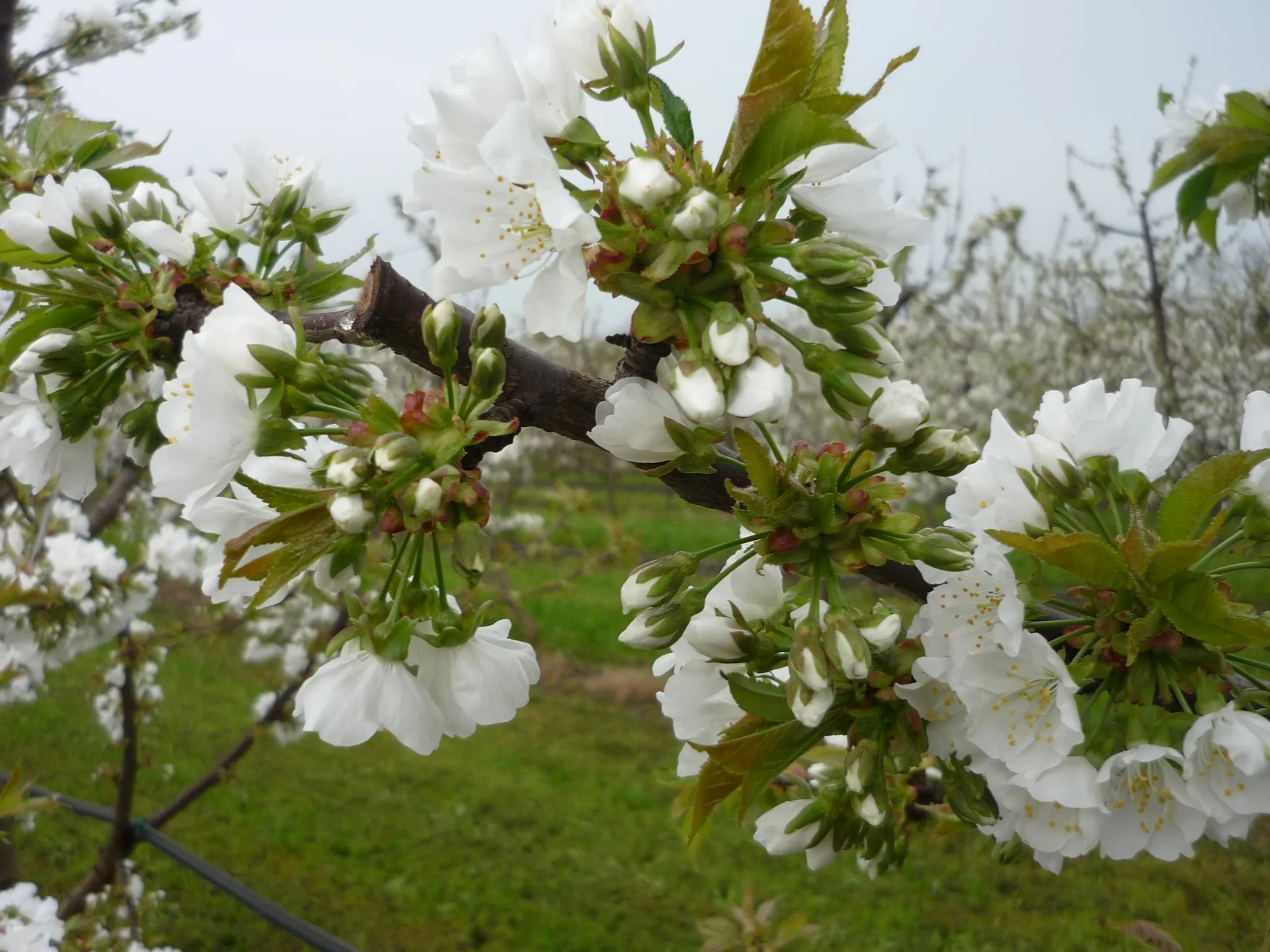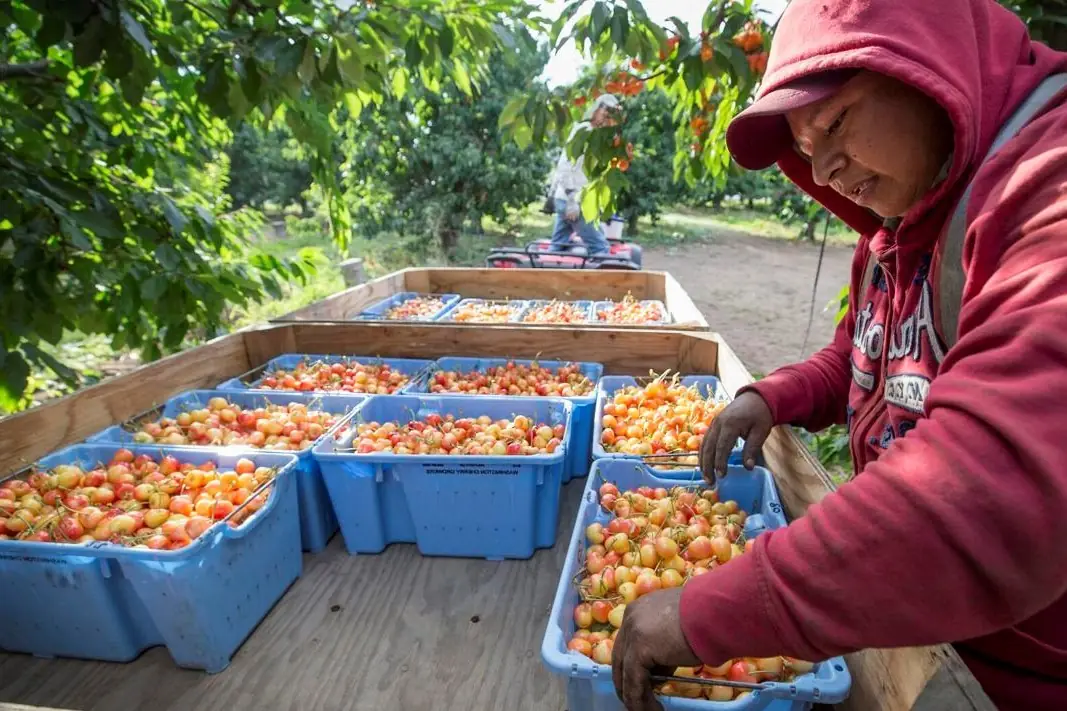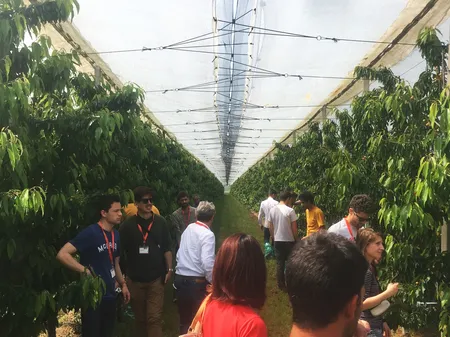At the XI National Congress on Plant Breeding, held in Cáceres (Spain) last September 2024, the impact of global warming on cherry cultivation was discussed. In particular, the results of a study that analyzed the needs of different cherry cultivars and their possible adaptation to changing environmental conditions were presented.
Global warming, which is leading to a general increase in temperatures, is also reducing the duration of winter cold, potentially putting the profitability of cherry varieties at risk in regions traditionally suitable for their cultivation. The characterization of agroclimatic requirements is becoming increasingly important in breeding programs, especially to develop new varieties with lower chilling requirements.
This allows for predicting the adaptability of varieties to future climatic conditions, guiding proper planning of new cherry orchards. To achieve this result, it is necessary to try to reduce the dormancy of the buds. It is a process of adaptation to winter cold that is simultaneously essential for flowering in the following season.
It is further divided into endodormancy, which consists of the accumulation of a certain number of cold hours, and ecodormancy, which requires the accumulation of warm hours before triggering growth in spring. These cold and heat requirements, known as agroclimatic requirements, are specific to each cherry variety. The researchers analyzed the agroclimatic requirements of eight cherry varieties, four early-flowering and four late-flowering, in Cáceres and Zaragoza, the main cherry-producing regions in Spain.

The cold was calculated in "Chill Portions" (CP) and the heat in "GDH" (Growing Degree Hours). The results showed that in Cáceres, early flowering varieties (second half of March) required less cold (42-48 CP) and heat (6,600-7,400 GDH) compared to late flowering varieties (first half of April, with values of 48-58 CP and 10,000-11,000 GDH). Both in Cáceres and Zaragoza, there has been a reduction in winter chill, more evident in the last decade, with Cáceres experiencing warmer winters compared to Zaragoza.
In Zaragoza, the studied varieties did not show adaptation problems in the projected scenarios. However, in Cáceres, the late-flowering varieties Regina and Lambert (CP ≥ 58) may encounter difficulties in meeting their chilling requirements starting from 2050. The probability of meeting the chilling requirement was calculated for each location, scenario, model, and time horizon to assess the adaptation of the varieties to future conditions. Based on all the parameters considered, an index was obtained to express the probability of meeting the chilling requirement in the different varieties under examination.
Values of 0.9 indicate that the cold requirement would not be met once every ten years, representing a significant risk for a cherry orchard. Therefore, values below 0.9 indicate adaptation problems.
In conclusion, the study emphasizes the importance of understanding the agroclimatic needs of cherry varieties in the context of climate change. As global warming continues to influence temperature patterns, the selection of varieties suitable for local conditions will be crucial for the success of cherry cultivation.
Source: Santolaria, N., Castel, L., Rodrigo, J., & Fadón, E. (2024). Impacto del calentamiento global en el cultivo y la mejora del cerezo: necesidades agroclimáticas y adaptación a las nuevas condiciones. En: López, M., Guerra, M.E., Ramos, M. & Galán, A.J. (eds.) (2024). XI Congreso Nacional de Mejora Genética de Plantas: Libro de resúmenes. (pp. 128). SECH.
Images: SL Fruit Service
Melissa Venturi
University of Bologna (IT)
Cherry Times - All rights reserved











